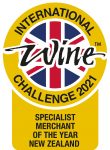No products in the cart.
Let’s talk organic wines
What is organic wine?
This word seems to have been thrown around like there’s no tomorrow, but let’s strip back the faff and get into the nitty gritty of what organic wine actually means.
The journey of a grape from vine to wine has changed over time. The process involves more processing and chemical intervention than ever before. Luckily, some farmers don’t agree with this change and believe that the old ways are best.
Organic Winemaking in its simplest forms: is wine made from grapes grown in accordance with principles of organic farming. This excludes the use of artificial chemical fertilisers, pesticides, fungicides and herbicides.
London is home to many fantastic places to drink and explore organics, including our very own bar in POP Brixton, and our big sister restaurant, the Laundry.
What wines are organic?
Marlborough Wines
Loveblock, perched high up in the Awatere Valley sub-region of Marlborough, has been producing sumptuous wines since 2004. Their hillside location has perfect northerly aspect and breezes help moderate conditions and reduce disease pressure. We’re loving their Sauvignon Blanc at the moment: Water white with a hint of green and gold. Lifted aromatics of canned peaches, pineapple and elderflower. Rockmelon, Cape gooseberry and crushed sweet meadow grass.
Australian Wines
Or if you’re feeling something from Australia… then perhaps their Cullen’s Red Blend is more up your street: A juicy and fruit-driven blend of Malbec, Petit Verdot and Merlot. Cherry, plum and spice flavours on the palate with balanced acidity backed by fine grained tannins.
But WHY organic?
Organic grapegrowing is vital to wine quality, land health, and worker and consumer well-being. Consumers are now asking the important questions and their decisions to choose organic is feeding the growth of the organic and biodynamic wine industry.
“There is a strong appetite for all things organic, and consumer awareness is increasing exponentially. People want to know what they are consuming. They want to know the product they are choosing has been made with little to no negative impact on the environment,” says Clive Dougall, chair of www.organicwinenz.com.
The difference between the wines:
The use of chemicals can spoil the PH balance of the soil and kill environmentally beneficial insects and weeds. As well as this they also pollute groundwater and local waterways. Organic wine is natural, sustainable and much more eco-friendly compared to conventional.
Natural Wine VS Organic Wine:
Natural wine consists of minimal intervention on the winemakers behalf, whereas organic wines requires a 5 year process to become certified. BUT there are rumours both produce a less intense hangover… what are your thoughts? We might need to test this out…
Organic Wine Week:
This initiative (set up by Organic Wine Growers New Zealand) was created in 2018 and has become an annual celebration every September.
The objectives are simple: to increase awareness of organic wine. Aiming to educate customers on why consuming organic is both good for them and for the land, and to support organic producers to ensure a healthy future world for us all.
A Whole Month of Organics
We, at Specialist Cellars, love organic wine SO much that we wanted to stretch this period out for the whole month! Which means promoting some incredible producers that work tirelessly to create certified organic wines. We’ll be chatting away on all our socials about the importance of drinking organically and some of our fav go to’s to drink!
Share on facebook
Facebook
Share on twitter
Twitter
Share on linkedin
LinkedIn









